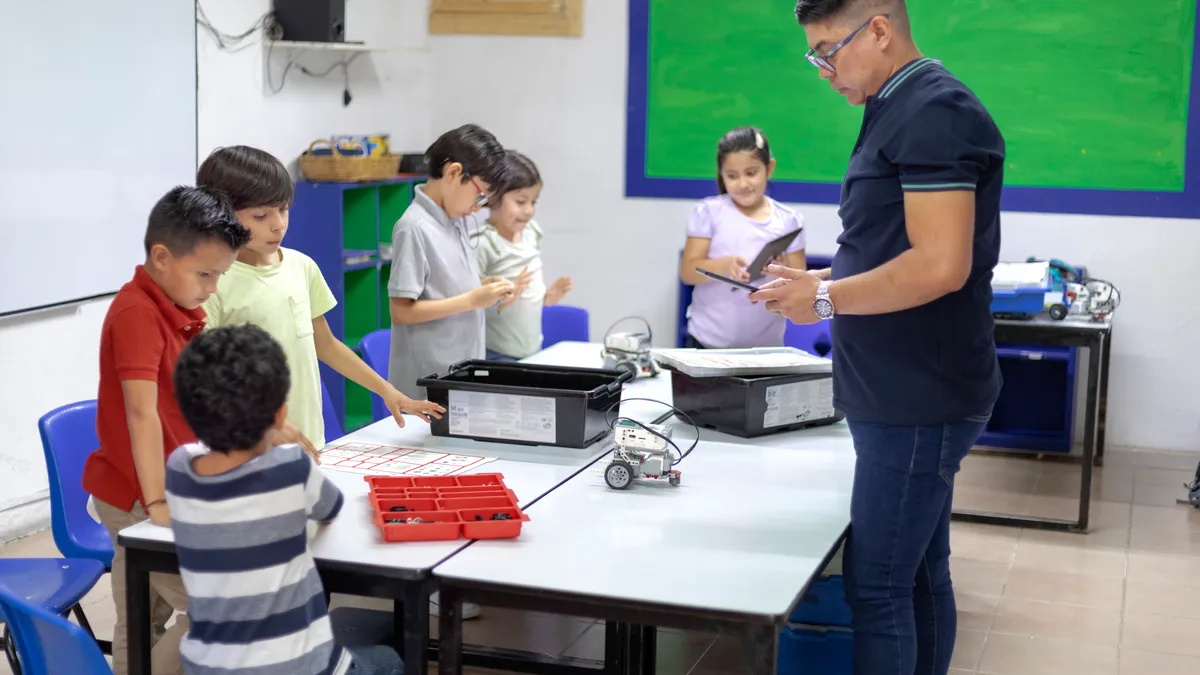Dive Brief:
- Giving students opportunities to design their own instruction can help hone their critical thinking, problem-solving and collaboration skills, which are traits needed for postsecondary success, according to a Rand Corp. report published Sept. 26.
- A majority of school districts that had a formal process for including student voice in instruction and learning said the students' input led to more hands-on and engaging instruction, according to polling analyzed by Rand.
- District leaders who were surveyed mentioned different forms of students’ active participation in academic learning that promote critical thinking. Those activities include answering high-level questions from teachers, inquiry-based learning, project-based learning, and participation in STEM and career and technical education courses.
Dive Insights:
As schools work to combat chronic absenteeism in the wake of the COVID-19 pandemic, some education experts encourage more active student participation in instruction and learning to encourage student engagement. Students who are active participants in their learning often seek hands-on, real-world, authentic academic opportunities.
Several ways that district leaders said schools are informing instruction include through student participation in annual surveys, student government, focus groups and on advisory councils. Administrators also noted the ways student recommendations influenced instruction, such as making suggestions to add business courses, as well as adding flexible time for studying, altering school schedules, and advocating for internships.
Students’ involvement in seeking improvements, problem-solving and recommending opportunities for engaging instruction has supported their critical thinking development, the district leaders said.
Helen Lee Bouygues, founder of the Reboot Foundation, a nonprofit that creates teacher resources to support students' critical thinking skills, said in an email that teachers want help incorporating critical thinking concepts into daily classroom lessons. Teachers have voiced concerns that technology is stifling students' critical thinking development, she said.
“Good critical thinking skills can be a stronger predictor of success in school and personal life than raw intelligence, so we must teach young people to be good critical thinkers," Bouygues said.
The survey results come from polling in fall 2023 and spring 2024 from members of the American School District Panel, which is a research partnership between Rand and the Center on Reinventing Public Education. Collectively, there were 421 respondents, although some respondents may have participated in both sets of polling.












